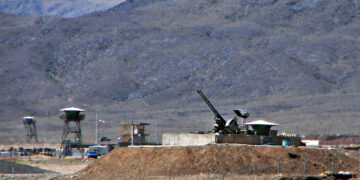September 11, 2024
Getting to a ceasefire In Gaza in the wake of hostage deaths

The tragic news of six dead hostages in Gaza has intensified calls inside Israel for the Netanyahu government to agree to a ceasefire, bring the remaining hostages home, and move toward peace in Gaza. The largest anti-government protests and strikes since 10/7 have now erupted across the country.
Washington should side with the Israeli public and bring new pressure to bear on Netanyahu to agree to a ceasefire, which would be good not just for peace but U.S. national interests more broadly. The war has elevated regional tensions that have cost the United States much in terms of blood and treasure. Due to Israel’s relentless war in Gaza and regional aggression, the Middle East now sits on the verge of a major war that could endanger the lives of our troops in the region. To get a ceasefire and reduce regional tensions, Washington needs to adjust its “ironclad support” for Israel, which has enabled Netanyahu to remain intransigent at the negotiating table.
While Hamas has made sizeable concessions in recent ceasefire negotiations, Israel has not. In fact, just the opposite, the Netanyahu government has hardened its position of late, adding new demands that Israeli forces stay in Gaza permanently in places like the Philadelphi corridor along the Gaza-Egyptian border. As a result, the negotiations are now at a standstill. It’s not the first time this has happened. In May, Hamas accepted a ceasefire proposal put forward by Qatar and Egypt. Despite major U.S. and international pressure, Israel rejected the plan and two days later initiated its major invasion of Rafah.
Ironically, U.S. policy has enabled Netanyahu’s inflexible stance. Washington has made an “ironclad commitment” to Israeli security backed by massive new arms shipments and movement of additional forces to the Middle East since 10/7. Scholars find robust security blankets like this make allies reckless and impervious to the interests of their great power patrons.
More on Middle East

Featuring Rosemary Kelanic
October 16, 2025
Featuring Daniel Davis
October 15, 2025
Events on Middle East







